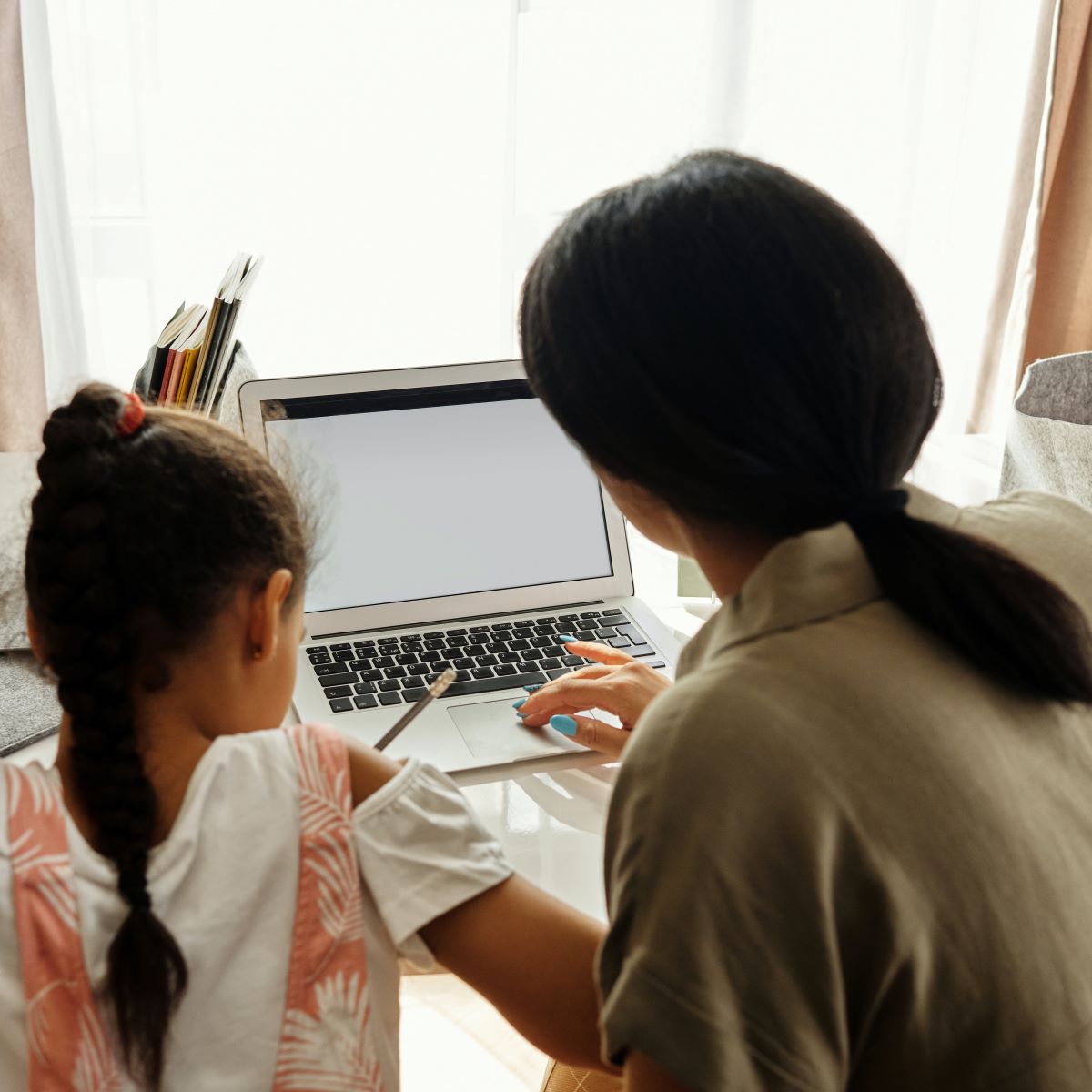As children return to school this week, Ministers are facing calls to make being a single parent a protected characteristic under the Equality Act after a survey shows the pandemic restrictions heightened single parents’ experience of discrimination.
In the UK today, a quarter of families are headed by a single parent. Despite this, single parents are not afforded protection in law and many government rules exclude single parents.
The ground-breaking survey from the campaign group Single Parent Rights – which had more than 1000 single parent participants – shows that single parents face discrimination in all aspects of their lives – from employment to housing and finances.
A staggering 51 per cent report that they experienced discrimination in Covid-19 restrictions, including being turned away from shops, facing heightened challenges to balance work and homeschooling and – in the cases of those with primary age children – effectively being unable to meet another adult outside. Research from the University of Oxford also found single parents were particularly vulnerable to the crisis and the Learning and Work Institute found single parents have been disproportionally furloughed/ made redundant during the pandemic.
Jane Attebrah, from Leeds, lives with her three-year-old son Theo and runs her own property business. She has lived with M.E since 2004. During lockdown Ms Attebrah was refused support from the nursery despite having to work 20 hours a week. “[During lockdown] we had to develop coping mechanisms, which were so saddening. Every night I put cereal in a Tupperware and milk in a feeder cup in the fridge. When Theo woke up, he would go get his breakfast and bring it to eat next to me in bed, watching something on the tablet, whilst I dozed or rested.”
More than 99 per cent of single parents who reported experiencing discrimination, suffered a negative impact, with 96 per cent reporting that their mental health suffered. Evidence shows that single mothers face almost double the rates of mental health challenges as mothers in couples. Seventy-three per cent of single parents reported a negative impact on their child(ren)’s life due to the discrimination. Evidence from MIND shows that parents’ mental ill health can have a negative impact on their child(ren).
Caroline Nokes, MP for Romsey and Southampton North and Chair of the Women and Equalities Select Committee, said, “During our inquiry into the gendered economic impact of Covid we heard a great deal of evidence of how single parents in particular had struggled in the pandemic. We know 80-90 per cent of them are women and it is not just during the pandemic that they face barriers that those in two-parent families do not. This research gives a very clear picture of those ongoing challenges.”
Thea Jaffe, 35, a single parent from North London, has been working full-time throughout the pandemic. Ms Jaffe said, “Why did it take the Government so long to notice how Covid restrictions were affecting single parents? Why did it take them so long to clock that working full time and homeschooling a 5-year-old is literally impossible? As we open up again, with every measure taken, the government needs to be asking, how will this affect single parents? So far, they clearly haven’t been doing that.”
The Single Parent Rights’ campaign was set up by Ruth Talbot during the first lockdown in 2020 in response to the invisibility of single parents. Ms Talbot helped to secure support bubbles for single parents after she hand-delivered a letter to Dominic Cummings and lobbied No10.
However, single parent discrimination predates the pandemic and without significant policy change is likely to continue unchecked. Child benefit rules mean two-parent families can receive the benefit whilst earning up to £100,000, twice what single parents can earn before their benefit is affected. Meanwhile, single parent registered carers are excluded from 30 hours of funded childcare for 3–4-year-olds because entitlement is based on having a partner in work.
Bell Ribeiro-Addy MP for Streatham and Member of the Women and Equalities Select Committee said, “The pandemic has highlighted the way policy-making is often oriented around the nuclear family, leaving single parents overlooked. Including single parents as a protected characteristic under the Equality Act would be a step towards addressing the disparities they face across a range of areas as a result of this.”
The research also revealed certain groups face heightened discrimination, including single parents from black, Asian, and minority ethnic groups, those living with disabilities and those on low incomes.
Rupa Huq, MP for Ealing Central and Acton, and Chair of the All-Party Parliamentary Group on Single Parent Families, said, “This painstakingly compiled report mixes extensive statistical data and rich detailed interview data to paint a disturbing picture of the multiple discriminatory barriers and hurdles faced by single parents today.”
Ms Talbot, said, “Prejudice, institutional bias, and a lack of legal protection has created a triple whammy for single parents. The impact goes beyond single parents themselves, affecting their children and wider society. We are calling on the UK government to address this discrimination by adding single parents as a protected characteristic in the Equality Act.”
The campaign has the support of 96 per cent of single parents surveyed and more than twenty UK based parenting and family support organisations, including, One Parent Families Scotland, Single Parent Wellbeing, and Dads Unlimited, as well as the backing of MP Bell Ribeiro-Addy.
Marion Davis, head of policy and strategy at One Parent Families Scotland, said, “OPFS fully supports the ‘Single Parent Rights’ campaign which calls on the UK government to add single parents as a tenth protected characteristic to the Equality Act, 2010. It is an injustice that single parent discrimination cannot be legally challenged because this is not illegal under UK law. Single parents who often face unfounded judgemental attitudes should be considered as a unique group and protected by law from discrimination.”
- For more information, visit www.singleparentrights.org/
- Picture posed by models, by August de Richelieu
Case study: mother of two Sarah Groszewski
 “I became a single mother in August 2019, when I moved nearly 100 miles away from the life I’d built in London over the past 12 years, to start again in Southampton, when my marriage ended. The main thing that struck me was how much easier it was to be a single parent, than a parent in a failing marriage. We very quickly settled into a new normal, surrounded by a huge group of friends who were a great support, and we very quickly forgot our old life.
“I became a single mother in August 2019, when I moved nearly 100 miles away from the life I’d built in London over the past 12 years, to start again in Southampton, when my marriage ended. The main thing that struck me was how much easier it was to be a single parent, than a parent in a failing marriage. We very quickly settled into a new normal, surrounded by a huge group of friends who were a great support, and we very quickly forgot our old life.
I was very fortunate to get my eldest into a lovely school who have supported him with the transition, found a perfect nursery for my youngest, and was able to quickly find a job that I loved.
Then a global pandemic hit.
It was during the first weeks of this pandemic that it really struck me how much harder some things were for single parents.
The Single Parent equality campaign focuses on the big, important issues that affect a large majority of Single Parents, and although it’s really important to tackle these, I have found that it’s the more mundane things that have been more of a struggle as a single parent. I have a very supportive employer who understands the challenges of single parenting and has afforded me a huge amount of flexibility. Within a few weeks of starting the role I had to ask to change my hours, because despite having a critical worker school place there was no wrapround care, meaning I wasn’t able to work outside of school hours. Where I’d once relied on a patchwork of childcare cobbled together between friends and family, I was now only able to use registered childcare. In later lockdowns we were able to access a childcare bubble, but mine had a job of her own which meant she wasn’t on hand for last minute emergency school pick ups. I’d usually call another parent, but we weren’t able to mix bubbles, so I had no choice but to do the pick ups myself every day. When I broke a tooth before Christmas, it was a struggle to fit an appointment in around school hours and work because of the lack of options for childcare and I was in pain for a number of days, when usually I’d just ask another mum to pick the kids up while I finished my appointment.
There was also the problem of lockdown not really meaning complete lockdown, but with enough services closed to make life wholly inconvenient – and a lot more expensive. We were finalising child arrangements through court when the first lockdown hit, and courts closed. But hearings didn’t stop, they carried on online. This was before childcare bubbles were allowed, and before critical worker childcare was finalised. I was expected to attend the hearing, and I had to confirm that nobody was present in the house while I attended. My options were to request an adjournment, which could have appeared as though I was attempting to prevent contact, or to send my children to someone else’s house breaking lockdown rules. When making the decision to continue hearings online the courts gave no regard to the childcare conundrums that single parent parties to the hearings would face, and there was little flexibility offered for the respondents. The requirements for submitting documents didn’t change either, but my access to a scanner and printer did. It ended up costing me over £500 to get someone else to scan and print documents for me – money which came from savings that I was hoping to use for a deposit on a house for me and the children.
 Lack of available childcare during lockdown has meant other aspects of life have been more challenging even outside of work. I am applying for a part time university course and co-ordinating an interview with three interviewers during school hours and outside of working hours was a logistical nightmare. I have recently taken on a volunteer role, and the same challenges apply to the required training. These things are vital to me to maintain my mental health and work towards a better future for my children so I consider them essential. In two-parent families, there would be some possibility of sharing the load, but single parents don’t have that option.
Lack of available childcare during lockdown has meant other aspects of life have been more challenging even outside of work. I am applying for a part time university course and co-ordinating an interview with three interviewers during school hours and outside of working hours was a logistical nightmare. I have recently taken on a volunteer role, and the same challenges apply to the required training. These things are vital to me to maintain my mental health and work towards a better future for my children so I consider them essential. In two-parent families, there would be some possibility of sharing the load, but single parents don’t have that option.
Preservation of our mental health during covid has been in equal amounts paramount, and impossible. My idea of self-care is paying for a couple of hours of cleaning or ironing, or finally getting someone with the appropriate tools and skills to fix the broken bits around my home. But lockdown has meant that we aren’t allowed to delegate most of these tasks, leaving us to deal with it by ourselves. For full disclosure I wasn’t completely single during for the entire period, and have been seeing someone very lovely for a number of months. Having adult company was a huge help and I am glad he has been able to support me through lockdown. But it’s early days, and when he asks if there’s anything he can do I am fairly sure he means can he put the kettle on, rather than would I like him to iron a week’s worth of school uniforms or change the bedding. I’ve seen many reports of people moving relationships on very quickly during covid and living together sooner than normal, and that’s really not an option when there are children involved who need stability now more than ever before.
Single parents with shared custody missed out over Christmas when visiting rules changed. Any children who were with only one of their parents on Christmas Day will have missed out on visiting the family of their other parent. In many cases they won’t have seen most of their family for nearly a year, so by making the allowed period for mixing just one day, single parents missed out on a special Christmas time with their children. My children were with their Dad, which means none of my own family were able to see them at Christmas.
Aside from covid, there are various other ways in which single parents – and often their children – are disadvantaged. School admissions policies for faith schools often require a signed letter showing attendance to church on a weekly basis. This is often not possible when children spend alternate weekends with their parents, often many miles from home, and sometimes with the other parent who doesn’t share the same religion, meaning they are unable to attend a school representing their own faith. My own sons attend a very lovely Church of England school, but it’s not our religion, and I can’t get a space at the Catholic school because they are unable to attend every week.
Some schools held parents evenings by phone this year, but in our case that meant only one parent could attend. We were so fortunate that the teachers made exceptions and phoned both of us, otherwise one of us would have missed out. Simple changes such as using a Zoom or Teams conference would have allowed us both to attend and discuss any issues together.
Alternate weekend access is a problem in many other ways. Most extra-curricular activities require payment for a term in advance and attendance is expected every week. In the case of children who travel to see other parents, or whose other parents are unwilling to take them to these activities, the other parent is faced with the option of telling their children they cannot attend, or paying for weeks that they won’t be using. In our case this applies to swimming lessons. There are no other lessons that we can attend around my work commitments other than a Friday night. Their father has them alternate Fridays and doesn’t want to take them to the 20 minute lesson during his time. I am scared of water, and both of us agree it’s a vital life skill that we are keen for the boys to learn, but I can’t justify paying for weekly lessons for them to attend only 50%.
The Single Parent equality campaign is vital to end discrimination based on parenting status, but one of the biggest ways we can change this is by being aware of single parents’ needs, being flexible and adapting policies that may inadvertently discriminate against single parent families. After all, swimming lessons may seem like a trivial issue compared with workplace discrimination but it could literally be a matter of life and death. “

